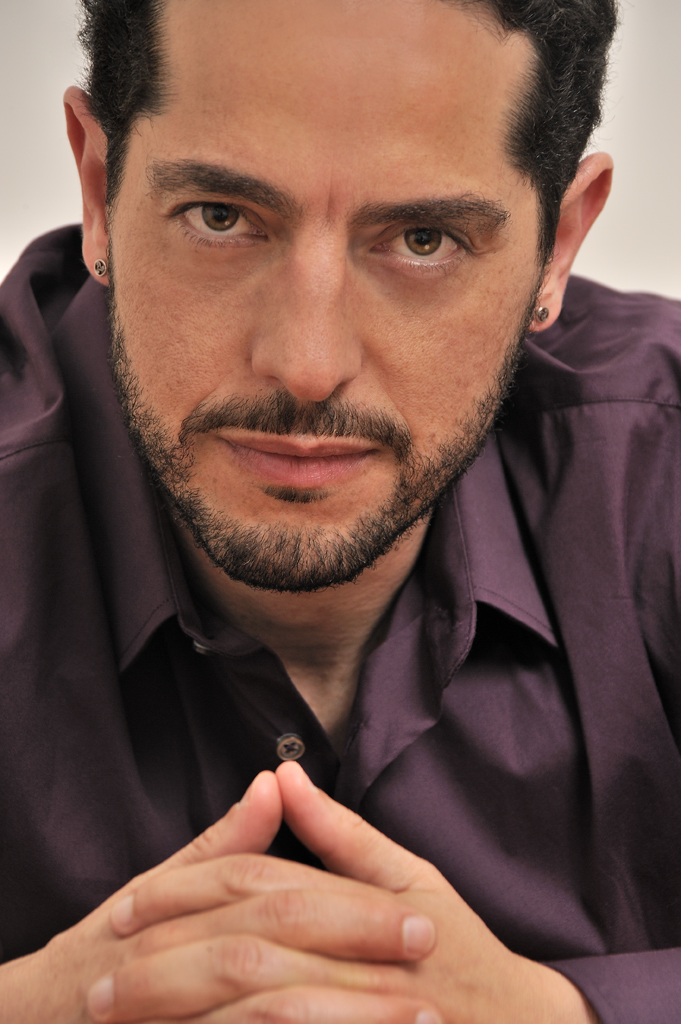克劳迪奥·瓦尔戴斯·库瑞(Claudio Valdés Kuri)

墨西哥导演,克劳迪奥·瓦尔戴斯·库瑞,被公认为是拉美最受欢迎的戏剧艺术家之一。墨西哥某民剧团(Teatro de Ciertos Habitantes)(1997年在墨西哥城成立)创始人和艺术总监,他的代表作品有《人生如梦》,《厄尔加洛》,《灰色的汽车》,《怪物和天才:阉人歌手的历史》,《贝克特或神的荣耀》,《今晚我会在何处?》和《皮肤》。他的原创作品曾在墨西哥、拉丁美洲、欧洲、亚洲、美国、澳大利亚和加勒比地区巡回演出,获得了墨西哥、甚至世界性的赞誉。“2011年度最佳剧场作品”(英国布莱顿艺术节),“先锋戏剧最佳导演”,“最佳戏剧构作”,“剧团最佳导演”(墨西哥戏剧评论协会,2002),“最佳客座戏剧导演”,“最佳访问戏剧作品”(纽约拉丁娱乐业评论协会),“金牌桂冠最佳指导”(梅斯艺术节,萨拉热窝,波斯尼亚),月刊《墨西哥领袖》公认他为国内300个最具影响力的领袖之一。瓦尔戴斯·库瑞的作品被以下机构委任使用:国家戏剧剧院(墨西哥),世界文化之家(德国,柏林),比利时布鲁塞尔艺术节(比利时,布鲁塞尔),维也纳艺术节(奥地利,维也纳),布莱顿艺术节(英国,布莱顿)。他入选参与艺术国际(纽约州,纽约)的项目“翻译与语境化”的开发,并参与由约翰·霍普·富兰克林赞助,北卡罗莱纳州的杜克大学(北卡罗莱纳州,罗利-达勒姆)举办的“语境中的艺术家”项目。克劳迪奥·瓦尔戴斯·库瑞墨西哥的墨西哥电影培训中心获得电影导演学位。自1976年开始,11岁的他就开始接受表演训练,指导老师是苏珊娜·魏恩,此后17年间,他参与了她的剧团不计其数的作品演出。1996至1999年,他是奥地利鲤鱼剧团的成员。他是早期音乐合唱团体“新艺术”的联合创办人和低音歌手,该团体致力于演出文艺复兴时期及拉丁美洲巴洛克音乐,并在国内和国际进行巡演。目前他是墨西哥国立文艺基金会(FONCA)和墨西哥国立文艺委员会(CONACULTA)所属的墨西哥国家文艺创作者协会(墨西哥国家艺术协会)的成员。
克劳迪奥·瓦尔戴斯·库瑞在墨西哥剧场界拥有独特的地位。借助构建戏剧性作品的方式,他找到了属于自己风格的剧场法则,那就是无意识的打破戏剧结构的束缚,去创造新的语汇。作为一位当代的创作者,他明白无法完全消除,也无法完全忘记传统。他不与这种历史传统对抗,而是很巧妙的用它作为使自己的语汇发展壮大的工具,让这种传统成为一种完全当代的方式和方法。
Claudio Valdés Kuri (Artistic Director)
Mexican director, Claudio Valdes Kuri, is recognized as one of Latin America’s most acclaimed theatre artists. Founder and artistic director founding member of the ensemble theatre company, Teatro de Ciertos Habitantes (1997 in Mexico City), Valdes Kuri’s extensive work includes Life is a Dream; El Gallo; The Grey Automobile; Monsters and Prodigies: The History of the Castrati; Becket or the Honour of God; Where Will I Be Tonight ?and Skin. His original productions have been presented and have toured in Mexico, throughout Latin America, Europe, Asia, the United States, Australia and the Caribbean. He and the theatre producitons he has directed have received critical acclaim in Mexico and internationally including, “Best Theatre Production of 2011 (Brighton Festival, UK) “Best Director of Avant Garde Theater” "Best Dramaturge" and "Best Director of a Theatre Company" (Association of Mexican Theatre Critics 2002),” “Best Visiting Theater Director” and “Best Visiting Theater Production” (Association of Latin Entertainment Critics of New York) and the “Golden Laurel Wreath for Best Direction” (Festival Mess, Sarajevo, Bosnia). The monthly publication “Mexican Leaders” has acknowledged him as one of the top 300 most influential leaders in the country. Valdes Kuri’s work has been commissioned by: Compañia Nacional de Teatro (Mexico), National Autonomous University of Mexico (UNAM), International Cervantino Festival (Guanajuato), Haus der Kulturen der Welt (Berlin, Germany), Kunsten Festival des Arts (Brussels, Belgium), Wiener Festwochen (Vienna, Austria)and Brighton Festival (Brighton, UK) He was selected to develop the “Translation and Contextualization” project for Arts International (New York, NY) and took part in the “Artist in Context” program sponsored by the John Hope Franklin Center of North Carolina’s Duke University (Raleigh-Durham, NC) Claudio Valdes Kuri holds a degree in film direction from Mexico’s Centro De Capacitacion Cinematografica. His training as an actor began at the age of 11 in 1976 under the tutelage of Susana Wein. He participated in countless productions with her company for the next seventeen years. From 1996 to 1999 he was a member of Carpa Theater of Austria. He was co-founder and bass voice of the early music ensemble Ars Nova, dedicated mostly to renaissance and Latin American baroque music which toured nationally and internationally.He is currently a member of the Sistema Nacional de Creadores FONCA-CONACULTA (the national arts commission of Mexico.)
Claudio Valdes Kuri has achieved a privileged position within the theatre world in Mexico.
He confirmed his familiarity with the rules of the theatre by playing with them to construct dramatic works, which unintentionally break the corsets of theatrical structure to create a new language…As a contemporary creator, he knows he can neither forget nor erase tradition entirely. Intelligently, he does not fight this heritage; he uses it as a tool to strengthen the development of his own language and of an absolutely contemporary approach.

